#skobelev
Explore tagged Tumblr posts
Text
0 notes
Text
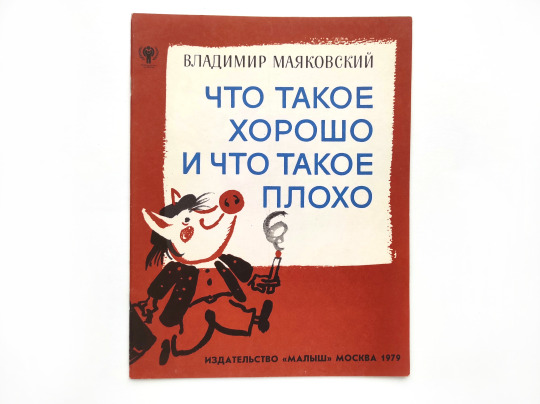
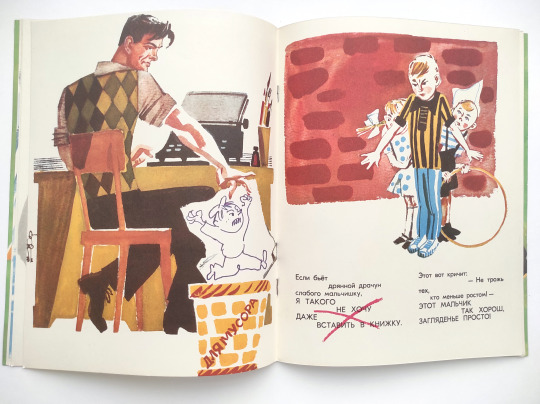
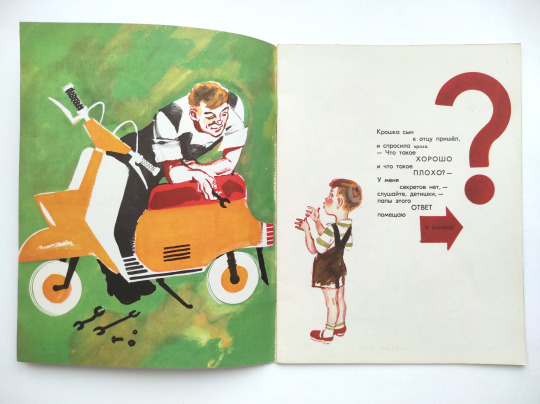
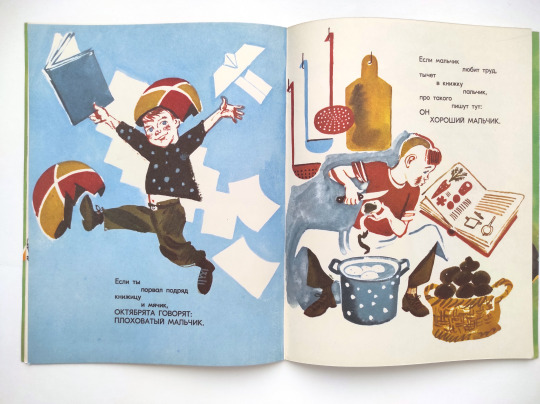
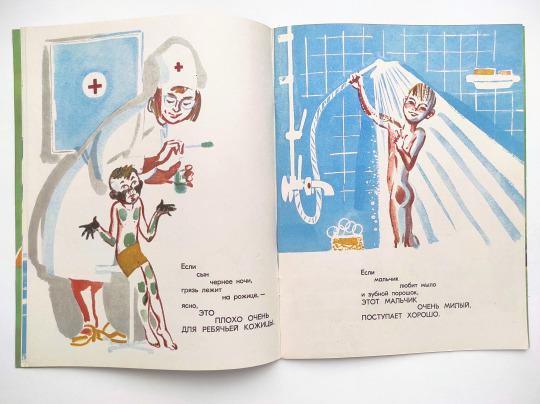
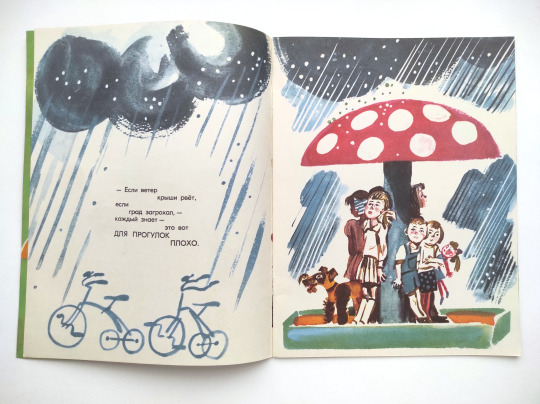
"What is Good and What is Bad" by Vladimir Mayakovsky, illustrated by M. Skobelev (1979)
Vintage children's book. Size 21 × 27.5 cm (8.3" × 10.8"). Paperback, 16 pages. Good condition, minor handling wear.
Available for $8.50 + $11 international registered shipping
Message me if you want to buy this! Other items in my shop. I combine shipping. How to buy.
103 notes
·
View notes
Photo

Mikhail Dmitrievich Skobelev, from the Great Generals series (N15) for Allen & Ginter Cigarettes Brands. 1888. Credit line: The Jefferson R. Burdick Collection, Gift of Jefferson R. Burdick https://www.metmuseum.org/art/collection/search/408260
#aesthetic#art#abstract art#art museum#art history#The Metropolitan Museum of Art#museum#museum photography#museum aesthetic#dark academia
5 notes
·
View notes
Text
Ukrainian Intelligence: Russia to relocate military assets from Syria to Africa
The Kremlin is poised to transfer some of its military assets from Syria to Africa, according to recent intelligence updates. Much of the military hardware stationed in Tartus is awaiting naval transport to Libya, reported the press service of the Ukrainian Military Intelligence Directorate.
On January 5, Russian large assault ships "Ivan Gren" and "Alexander Otrakovsky" are expected to dock at Tartus. Adding to the fleet, the cargo ship Sparta, currently in the Mediterranean Sea, will also join. Onboard the "Alexander Otrakovsky" is Captain 1st Rank Yuri Davityan.
Following this, by January 8, two more ships are set to arrive at Tartus: the cargo ship Sparta II and the tanker "Ivan Skobelev," both currently near the Strait of Gibraltar. According to intelligence sources, the Sparta and Sparta II ships will transport Russian military equipment from Syria to Libya. Meanwhile, a transport plane carrying armored vehicles from Syria recently landed at an airport in Russia's Vladimir region.
0 notes
Link
0 notes
Text
Força Aérea deteta navio russo em águas nacionais
Uma aeronave da Força Aérea monitorizou um navio da Federação Russa no dia de ontem, 14 de outubro, enquanto efetuavam uma missão de rotina de monitorização na Zona Económica Exclusiva Continental, com o objetivo de assegurar a integridade e proteção do espaço marítimo sob jurisdição nacional.
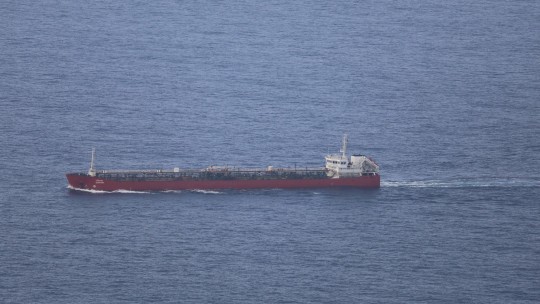
O navio da classe Products Tanker, General Skobelev, foi detetado a aproximadamente 40 milhas do Cabo Carvoeiro, onde a sua atividade foi acompanhada enquanto navegava nas águas sob jurisdição nacional. Esta foi a quarta passagem deste navio pelas águas portuguesas no presente ano.
Esse tipo de missão desempenha um papel fundamental ao reforçar a vigilância do espaço estratégico, assegurando uma presença constante e atenta às movimentações na área de interesse nacional, o que, por sua vez, contribui significativamente para a segurança e proteção das águas que estão sob a responsabilidade de Portugal.
Esta foi a 22.ª missão de monitorização de navios não NATO em 2024, onde foram já acompanhados 34 navios russos e dois chineses.
Foto Força Área Portuguesa
0 notes
Photo
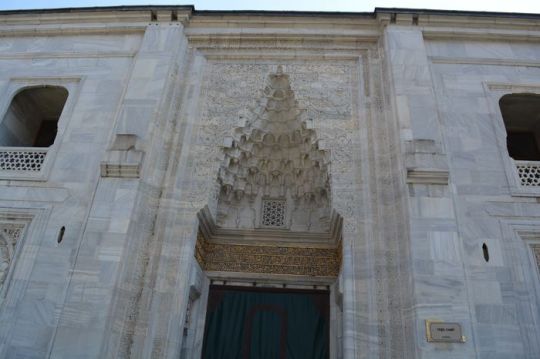
Januarius Aloysius MacGahan A Champion of Justice and Truth
Friendship and Valor in War
After joining the Russian army, Januarius Aloysius MacGahan forged sincere friendships with General Skobelev and General Gurko. He actively participated in all major battles for the liberation of Bulgaria, including the pivotal battles of Plevna and Shipka. His vivid descriptions of these battles stand as remarkable examples of journalism, capturing the intensity and heroism of the struggle for liberation.
Sacrifice and Service
Despite suffering a broken ankle, MacGahan remained steadfastly present at the frontlines throughout the Russo-Turkish War. His unwavering commitment to documenting the realities of war led him to Istanbul, where, exhausted and afflicted with typhoid fever, he passed away on June 9, 1878, at the age of 34. In his untimely death, MacGahan’s destiny became forever linked with the liberation of the Bulgarian people, a cause he served with unwavering dedication Sightseeing Turkey.
Investigating Atrocities
The reports on the April uprising in Bulgaria emerged from a conflict between the British government and the liberal leadership of the “Daily News,” led by Frank Hill, the chief editor. The “Daily News,” renowned for its well-organized foreign service, published a series of letters by correspondent Edween Pears, detailing monstrous atrocities in Bulgaria. These reports stirred doubts among the British public regarding the government’s Balkan policy.
Seeking Truth
To address public concerns and refute government accusations, the editorial board of the “Daily News” launched an inquiry, dispatching Januarius Aloysius MacGahan as a special commissioner to Bulgaria. MacGahan’s impeccable journalistic credentials made him uniquely suited for this mission. Simultaneously, the British government initiated its own official inquiry, led by Sir Henry Elliot and Walter Baring. Additionally, American Minister Maynard tasked General-consul Eugene Schuyler with investigating the atrocities.
Parallel Investigations
MacGahan’s investigation ran parallel to those of Schuyler and Baring. Schuyler and Baring, initially appointed to challenge MacGahan’s accounts, became supportive of his findings. While Schuyler’s report, published on August 28th, corroborated MacGahan’s observations, Baring, guided by a pro-Turkish stance, contradicted his earlier instructions to discredit MacGahan’s reports.
Legacy of Truth
Januarius Aloysius MacGahan’s legacy as a fearless journalist and advocate for justice endures. His courageous reporting and dedication to uncovering the truth about atrocities in Bulgaria not only galvanized public opinion but also reshaped diplomatic discourse. Through his unwavering commitment to truth and justice, MacGahan left an indelible mark on the history of journalism and human rights advocacy.
0 notes
Photo
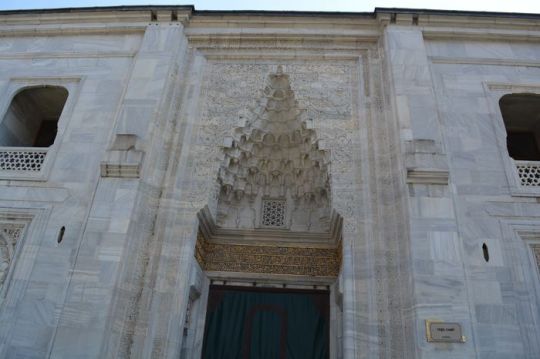
Januarius Aloysius MacGahan A Champion of Justice and Truth
Friendship and Valor in War
After joining the Russian army, Januarius Aloysius MacGahan forged sincere friendships with General Skobelev and General Gurko. He actively participated in all major battles for the liberation of Bulgaria, including the pivotal battles of Plevna and Shipka. His vivid descriptions of these battles stand as remarkable examples of journalism, capturing the intensity and heroism of the struggle for liberation.
Sacrifice and Service
Despite suffering a broken ankle, MacGahan remained steadfastly present at the frontlines throughout the Russo-Turkish War. His unwavering commitment to documenting the realities of war led him to Istanbul, where, exhausted and afflicted with typhoid fever, he passed away on June 9, 1878, at the age of 34. In his untimely death, MacGahan’s destiny became forever linked with the liberation of the Bulgarian people, a cause he served with unwavering dedication Sightseeing Turkey.
Investigating Atrocities
The reports on the April uprising in Bulgaria emerged from a conflict between the British government and the liberal leadership of the “Daily News,” led by Frank Hill, the chief editor. The “Daily News,” renowned for its well-organized foreign service, published a series of letters by correspondent Edween Pears, detailing monstrous atrocities in Bulgaria. These reports stirred doubts among the British public regarding the government’s Balkan policy.
Seeking Truth
To address public concerns and refute government accusations, the editorial board of the “Daily News” launched an inquiry, dispatching Januarius Aloysius MacGahan as a special commissioner to Bulgaria. MacGahan’s impeccable journalistic credentials made him uniquely suited for this mission. Simultaneously, the British government initiated its own official inquiry, led by Sir Henry Elliot and Walter Baring. Additionally, American Minister Maynard tasked General-consul Eugene Schuyler with investigating the atrocities.
Parallel Investigations
MacGahan’s investigation ran parallel to those of Schuyler and Baring. Schuyler and Baring, initially appointed to challenge MacGahan’s accounts, became supportive of his findings. While Schuyler’s report, published on August 28th, corroborated MacGahan’s observations, Baring, guided by a pro-Turkish stance, contradicted his earlier instructions to discredit MacGahan’s reports.
Legacy of Truth
Januarius Aloysius MacGahan’s legacy as a fearless journalist and advocate for justice endures. His courageous reporting and dedication to uncovering the truth about atrocities in Bulgaria not only galvanized public opinion but also reshaped diplomatic discourse. Through his unwavering commitment to truth and justice, MacGahan left an indelible mark on the history of journalism and human rights advocacy.
0 notes
Photo
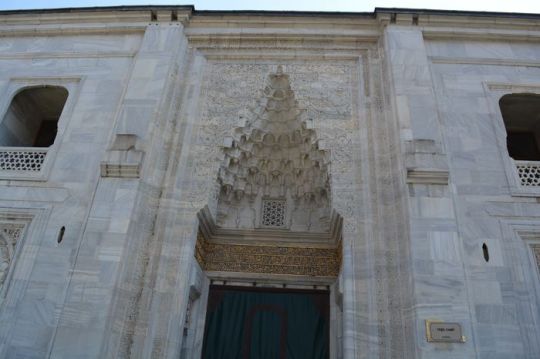
Januarius Aloysius MacGahan A Champion of Justice and Truth
Friendship and Valor in War
After joining the Russian army, Januarius Aloysius MacGahan forged sincere friendships with General Skobelev and General Gurko. He actively participated in all major battles for the liberation of Bulgaria, including the pivotal battles of Plevna and Shipka. His vivid descriptions of these battles stand as remarkable examples of journalism, capturing the intensity and heroism of the struggle for liberation.
Sacrifice and Service
Despite suffering a broken ankle, MacGahan remained steadfastly present at the frontlines throughout the Russo-Turkish War. His unwavering commitment to documenting the realities of war led him to Istanbul, where, exhausted and afflicted with typhoid fever, he passed away on June 9, 1878, at the age of 34. In his untimely death, MacGahan’s destiny became forever linked with the liberation of the Bulgarian people, a cause he served with unwavering dedication Sightseeing Turkey.
Investigating Atrocities
The reports on the April uprising in Bulgaria emerged from a conflict between the British government and the liberal leadership of the “Daily News,” led by Frank Hill, the chief editor. The “Daily News,” renowned for its well-organized foreign service, published a series of letters by correspondent Edween Pears, detailing monstrous atrocities in Bulgaria. These reports stirred doubts among the British public regarding the government’s Balkan policy.
Seeking Truth
To address public concerns and refute government accusations, the editorial board of the “Daily News” launched an inquiry, dispatching Januarius Aloysius MacGahan as a special commissioner to Bulgaria. MacGahan’s impeccable journalistic credentials made him uniquely suited for this mission. Simultaneously, the British government initiated its own official inquiry, led by Sir Henry Elliot and Walter Baring. Additionally, American Minister Maynard tasked General-consul Eugene Schuyler with investigating the atrocities.
Parallel Investigations
MacGahan’s investigation ran parallel to those of Schuyler and Baring. Schuyler and Baring, initially appointed to challenge MacGahan’s accounts, became supportive of his findings. While Schuyler’s report, published on August 28th, corroborated MacGahan’s observations, Baring, guided by a pro-Turkish stance, contradicted his earlier instructions to discredit MacGahan’s reports.
Legacy of Truth
Januarius Aloysius MacGahan’s legacy as a fearless journalist and advocate for justice endures. His courageous reporting and dedication to uncovering the truth about atrocities in Bulgaria not only galvanized public opinion but also reshaped diplomatic discourse. Through his unwavering commitment to truth and justice, MacGahan left an indelible mark on the history of journalism and human rights advocacy.
0 notes
Photo
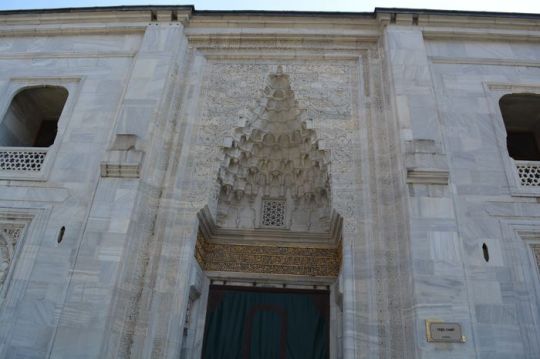
Januarius Aloysius MacGahan A Champion of Justice and Truth
Friendship and Valor in War
After joining the Russian army, Januarius Aloysius MacGahan forged sincere friendships with General Skobelev and General Gurko. He actively participated in all major battles for the liberation of Bulgaria, including the pivotal battles of Plevna and Shipka. His vivid descriptions of these battles stand as remarkable examples of journalism, capturing the intensity and heroism of the struggle for liberation.
Sacrifice and Service
Despite suffering a broken ankle, MacGahan remained steadfastly present at the frontlines throughout the Russo-Turkish War. His unwavering commitment to documenting the realities of war led him to Istanbul, where, exhausted and afflicted with typhoid fever, he passed away on June 9, 1878, at the age of 34. In his untimely death, MacGahan’s destiny became forever linked with the liberation of the Bulgarian people, a cause he served with unwavering dedication Sightseeing Turkey.
Investigating Atrocities
The reports on the April uprising in Bulgaria emerged from a conflict between the British government and the liberal leadership of the “Daily News,” led by Frank Hill, the chief editor. The “Daily News,” renowned for its well-organized foreign service, published a series of letters by correspondent Edween Pears, detailing monstrous atrocities in Bulgaria. These reports stirred doubts among the British public regarding the government’s Balkan policy.
Seeking Truth
To address public concerns and refute government accusations, the editorial board of the “Daily News” launched an inquiry, dispatching Januarius Aloysius MacGahan as a special commissioner to Bulgaria. MacGahan’s impeccable journalistic credentials made him uniquely suited for this mission. Simultaneously, the British government initiated its own official inquiry, led by Sir Henry Elliot and Walter Baring. Additionally, American Minister Maynard tasked General-consul Eugene Schuyler with investigating the atrocities.
Parallel Investigations
MacGahan’s investigation ran parallel to those of Schuyler and Baring. Schuyler and Baring, initially appointed to challenge MacGahan’s accounts, became supportive of his findings. While Schuyler’s report, published on August 28th, corroborated MacGahan’s observations, Baring, guided by a pro-Turkish stance, contradicted his earlier instructions to discredit MacGahan’s reports.
Legacy of Truth
Januarius Aloysius MacGahan’s legacy as a fearless journalist and advocate for justice endures. His courageous reporting and dedication to uncovering the truth about atrocities in Bulgaria not only galvanized public opinion but also reshaped diplomatic discourse. Through his unwavering commitment to truth and justice, MacGahan left an indelible mark on the history of journalism and human rights advocacy.
0 notes
Text
New Post has been published on Vasilka
Januarius Aloysius MacGahan A Champion of Justice and Truth
Friendship and Valor in War
After joining the Russian army, Januarius Aloysius MacGahan forged sincere friendships with General Skobelev and General Gurko. He actively participated in all major battles for the liberation of Bulgaria, including the pivotal battles of Plevna and Shipka. His vivid descriptions of these battles stand as remarkable examples of journalism, capturing the intensity and heroism of the struggle for liberation.
Sacrifice and Service
Despite suffering a broken ankle, MacGahan remained steadfastly present at the frontlines throughout the Russo-Turkish War. His unwavering commitment to documenting the realities of war led him to Istanbul, where, exhausted and afflicted with typhoid fever, he passed away on June 9, 1878, at the age of 34. In his untimely death, MacGahan’s destiny became forever linked with the liberation of the Bulgarian people, a cause he served with unwavering dedication Sightseeing Turkey.
Investigating Atrocities
The reports on the April uprising in Bulgaria emerged from a conflict between the British government and the liberal leadership of the “Daily News,” led by Frank Hill, the chief editor. The “Daily News,” renowned for its well-organized foreign service, published a series of letters by correspondent Edween Pears, detailing monstrous atrocities in Bulgaria. These reports stirred doubts among the British public regarding the government’s Balkan policy.
Seeking Truth
To address public concerns and refute government accusations, the editorial board of the “Daily News” launched an inquiry, dispatching Januarius Aloysius MacGahan as a special commissioner to Bulgaria. MacGahan’s impeccable journalistic credentials made him uniquely suited for this mission. Simultaneously, the British government initiated its own official inquiry, led by Sir Henry Elliot and Walter Baring. Additionally, American Minister Maynard tasked General-consul Eugene Schuyler with investigating the atrocities.
Parallel Investigations
MacGahan’s investigation ran parallel to those of Schuyler and Baring. Schuyler and Baring, initially appointed to challenge MacGahan’s accounts, became supportive of his findings. While Schuyler’s report, published on August 28th, corroborated MacGahan’s observations, Baring, guided by a pro-Turkish stance, contradicted his earlier instructions to discredit MacGahan’s reports.
Legacy of Truth
Januarius Aloysius MacGahan’s legacy as a fearless journalist and advocate for justice endures. His courageous reporting and dedication to uncovering the truth about atrocities in Bulgaria not only galvanized public opinion but also reshaped diplomatic discourse. Through his unwavering commitment to truth and justice, MacGahan left an indelible mark on the history of journalism and human rights advocacy.
0 notes
Text
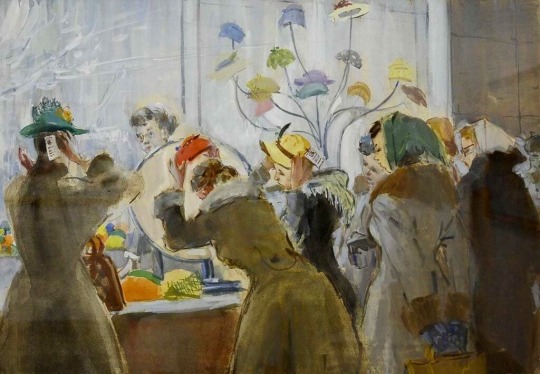
"Spring Is Close" by Mikhail Skobelev (1950s)
119 notes
·
View notes
Photo
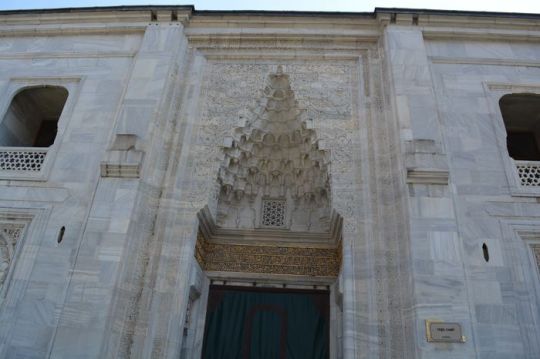
Januarius Aloysius MacGahan A Champion of Justice and Truth
Friendship and Valor in War
After joining the Russian army, Januarius Aloysius MacGahan forged sincere friendships with General Skobelev and General Gurko. He actively participated in all major battles for the liberation of Bulgaria, including the pivotal battles of Plevna and Shipka. His vivid descriptions of these battles stand as remarkable examples of journalism, capturing the intensity and heroism of the struggle for liberation.
Sacrifice and Service
Despite suffering a broken ankle, MacGahan remained steadfastly present at the frontlines throughout the Russo-Turkish War. His unwavering commitment to documenting the realities of war led him to Istanbul, where, exhausted and afflicted with typhoid fever, he passed away on June 9, 1878, at the age of 34. In his untimely death, MacGahan’s destiny became forever linked with the liberation of the Bulgarian people, a cause he served with unwavering dedication Sightseeing Turkey.
Investigating Atrocities
The reports on the April uprising in Bulgaria emerged from a conflict between the British government and the liberal leadership of the “Daily News,” led by Frank Hill, the chief editor. The “Daily News,” renowned for its well-organized foreign service, published a series of letters by correspondent Edween Pears, detailing monstrous atrocities in Bulgaria. These reports stirred doubts among the British public regarding the government’s Balkan policy.
Seeking Truth
To address public concerns and refute government accusations, the editorial board of the “Daily News” launched an inquiry, dispatching Januarius Aloysius MacGahan as a special commissioner to Bulgaria. MacGahan’s impeccable journalistic credentials made him uniquely suited for this mission. Simultaneously, the British government initiated its own official inquiry, led by Sir Henry Elliot and Walter Baring. Additionally, American Minister Maynard tasked General-consul Eugene Schuyler with investigating the atrocities.
Parallel Investigations
MacGahan’s investigation ran parallel to those of Schuyler and Baring. Schuyler and Baring, initially appointed to challenge MacGahan’s accounts, became supportive of his findings. While Schuyler’s report, published on August 28th, corroborated MacGahan’s observations, Baring, guided by a pro-Turkish stance, contradicted his earlier instructions to discredit MacGahan’s reports.
Legacy of Truth
Januarius Aloysius MacGahan’s legacy as a fearless journalist and advocate for justice endures. His courageous reporting and dedication to uncovering the truth about atrocities in Bulgaria not only galvanized public opinion but also reshaped diplomatic discourse. Through his unwavering commitment to truth and justice, MacGahan left an indelible mark on the history of journalism and human rights advocacy.
0 notes
Photo

Januarius Aloysius MacGahan A Champion of Justice and Truth
Friendship and Valor in War
After joining the Russian army, Januarius Aloysius MacGahan forged sincere friendships with General Skobelev and General Gurko. He actively participated in all major battles for the liberation of Bulgaria, including the pivotal battles of Plevna and Shipka. His vivid descriptions of these battles stand as remarkable examples of journalism, capturing the intensity and heroism of the struggle for liberation.
Sacrifice and Service
Despite suffering a broken ankle, MacGahan remained steadfastly present at the frontlines throughout the Russo-Turkish War. His unwavering commitment to documenting the realities of war led him to Istanbul, where, exhausted and afflicted with typhoid fever, he passed away on June 9, 1878, at the age of 34. In his untimely death, MacGahan’s destiny became forever linked with the liberation of the Bulgarian people, a cause he served with unwavering dedication Sightseeing Turkey.
Investigating Atrocities
The reports on the April uprising in Bulgaria emerged from a conflict between the British government and the liberal leadership of the “Daily News,” led by Frank Hill, the chief editor. The “Daily News,” renowned for its well-organized foreign service, published a series of letters by correspondent Edween Pears, detailing monstrous atrocities in Bulgaria. These reports stirred doubts among the British public regarding the government’s Balkan policy.
Seeking Truth
To address public concerns and refute government accusations, the editorial board of the “Daily News” launched an inquiry, dispatching Januarius Aloysius MacGahan as a special commissioner to Bulgaria. MacGahan’s impeccable journalistic credentials made him uniquely suited for this mission. Simultaneously, the British government initiated its own official inquiry, led by Sir Henry Elliot and Walter Baring. Additionally, American Minister Maynard tasked General-consul Eugene Schuyler with investigating the atrocities.
Parallel Investigations
MacGahan’s investigation ran parallel to those of Schuyler and Baring. Schuyler and Baring, initially appointed to challenge MacGahan’s accounts, became supportive of his findings. While Schuyler’s report, published on August 28th, corroborated MacGahan’s observations, Baring, guided by a pro-Turkish stance, contradicted his earlier instructions to discredit MacGahan’s reports.
Legacy of Truth
Januarius Aloysius MacGahan’s legacy as a fearless journalist and advocate for justice endures. His courageous reporting and dedication to uncovering the truth about atrocities in Bulgaria not only galvanized public opinion but also reshaped diplomatic discourse. Through his unwavering commitment to truth and justice, MacGahan left an indelible mark on the history of journalism and human rights advocacy.
0 notes
Photo

Januarius Aloysius MacGahan A Champion of Justice and Truth
Friendship and Valor in War
After joining the Russian army, Januarius Aloysius MacGahan forged sincere friendships with General Skobelev and General Gurko. He actively participated in all major battles for the liberation of Bulgaria, including the pivotal battles of Plevna and Shipka. His vivid descriptions of these battles stand as remarkable examples of journalism, capturing the intensity and heroism of the struggle for liberation.
Sacrifice and Service
Despite suffering a broken ankle, MacGahan remained steadfastly present at the frontlines throughout the Russo-Turkish War. His unwavering commitment to documenting the realities of war led him to Istanbul, where, exhausted and afflicted with typhoid fever, he passed away on June 9, 1878, at the age of 34. In his untimely death, MacGahan’s destiny became forever linked with the liberation of the Bulgarian people, a cause he served with unwavering dedication Sightseeing Turkey.
Investigating Atrocities
The reports on the April uprising in Bulgaria emerged from a conflict between the British government and the liberal leadership of the “Daily News,” led by Frank Hill, the chief editor. The “Daily News,” renowned for its well-organized foreign service, published a series of letters by correspondent Edween Pears, detailing monstrous atrocities in Bulgaria. These reports stirred doubts among the British public regarding the government’s Balkan policy.
Seeking Truth
To address public concerns and refute government accusations, the editorial board of the “Daily News” launched an inquiry, dispatching Januarius Aloysius MacGahan as a special commissioner to Bulgaria. MacGahan’s impeccable journalistic credentials made him uniquely suited for this mission. Simultaneously, the British government initiated its own official inquiry, led by Sir Henry Elliot and Walter Baring. Additionally, American Minister Maynard tasked General-consul Eugene Schuyler with investigating the atrocities.
Parallel Investigations
MacGahan’s investigation ran parallel to those of Schuyler and Baring. Schuyler and Baring, initially appointed to challenge MacGahan’s accounts, became supportive of his findings. While Schuyler’s report, published on August 28th, corroborated MacGahan’s observations, Baring, guided by a pro-Turkish stance, contradicted his earlier instructions to discredit MacGahan’s reports.
Legacy of Truth
Januarius Aloysius MacGahan’s legacy as a fearless journalist and advocate for justice endures. His courageous reporting and dedication to uncovering the truth about atrocities in Bulgaria not only galvanized public opinion but also reshaped diplomatic discourse. Through his unwavering commitment to truth and justice, MacGahan left an indelible mark on the history of journalism and human rights advocacy.
0 notes
